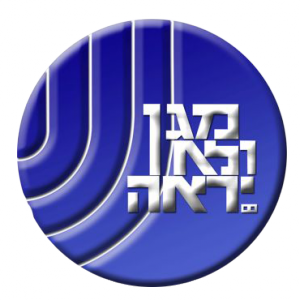TerrorismIsrael’ security agencies take gloves off in dealing with Jewish terrorists
The killing last summer of a Palestinian family by Jewish fanatics forced the Israeli security agencies to rethink their approach to the growing threat of violence posed by Jewish religious radicals. These religious extremists, raised in Israeli settlements built in the occupied Palestinian territories, are small in number, but they enjoy the tacit support of many settlers, and, as importantly, the blessings of a few extremist but influential rabbis. The Israeli security services have decided to take the gloves off, and subject Jewish extremists to enhanced interrogation techniques which, until now, have been used only on Palestinian terrorism suspects. The more robust interrogations have yielded important results.

Logo of Shin Bet, known in Israel by its Hebrew acronym, Shabak // Source: wikipedia.org
The killing last summer of a Palestinian family by Jewish fanatics forced the Israeli security agencies to rethink their approach to the growing threat of violence posed by Jewish religious radicals. These religious extremists, raised in Israeli settlements built in the occupied Palestinian territories, are small in number, but they enjoy the tacit support of many settlers, and, as importantly, the blessings of a few extremist but influential rabbis.
The New York Times reports that the Israeli security services became aware of the existence of the extremist network, which calls itself the Revolt, about six months ago, after several suspects were arrested in connection of the killing by arson of the Palestinian family in the village of Duma.
The arrests themselves were not unusuall – suspects in Jewish terrorism against Palestinians were detained before, but since Jewish terrorists were not subject to the “enhanced interrogation” techniques the Israeli security services use on Palestinian terrorism suspects, these Jewish suspects just kept mum and were let go by the courts for lack of evidence.
After Duma, the Shin Bet took off the gloves – and interrogated the Jewish terrorism suspects in the same way the Shin Bet interrogates Palestinian suspects (people in the know say that it would not only be an exaggeration to say that the Jewish suspects were subjected to the same interrogation techniques as Palestinian suspects; it would an exaggeration to say they were subject to 10 percent of what Palestinian suspects are routinely subjected to).
The suspects talked, and the scope of the violent network became clearer.
Shin Bet says the group poses a continuing danger of violence not only in the immediate sense of succeeding in their attempts to kill Palestinian Muslims and Christians – and perhaps even Israeli Arabs. The deeper fear is that these racist and deluded Jewish fanatics may somehow succeed in damaging the Al Aqsa mosque (for example, by firing a should-fired rocket at it), thus succeeding in their goal of igniting an all-out religious war between Muslims and Jews.
The Revolt network is not only about forcibly expelling all Muslims and Christians from the Holy Land and destroying Churches and Mosques – they have a larger goal. The Revolt extremists’ manifesto declares that they seek the collapse of the state of Israel, with its democratic government and legal system, and the creation of a Jewish kingdom in its place, a kingdom ruled by religious Biblical law.
Shin Bet has made public a manual that it said was written by another activist, Moshe Orbach, with instructions on how to set fire to mosques and Palestinian houses.
The Times notes that the Revolt is a more extreme heir to an older generation of youths in the illegal settlements in the West Bank, youth who followed a doctrine known as the “Price Tag.” The doctrine adherents attacked Palestinians in the West Bank and Israeli Arabs in Israel proper. They also confronted the Israeli military and police in order to deter the security forces from dismantling illegal settlements or impose any kind of law on the lawless settlers.
Price Tag itself followed an earlier generation of extremist settlers, the so-called Jewish Underground of the 1980s, which killed and maimed Palestinian mayors and students. Analysts note that while the Jewish Underground was composed mainly of army veterans in their 30s, the current Revolt is largely composed of young high school dropouts.
Shin Bet dates the beginning of the Revolt to the fall of 2013, when Jewish extremists began attacking Christian churches.
